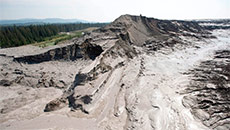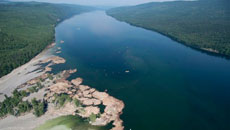The once-stellar reputation of Statistics Canada took a huge hit Friday with the release of a correction to one of its flagship reports.
The national statistical agency reported a week ago that the economy gained a paltry 200 jobs in July — raising the eyebrows of economists who thought the number would be closer to 20,000.
But it turns out that figure was way off the mark. The revised July jobs report shows a net gain of a whopping 42,000 jobs.
Statistics Canada blamed the botched numbers on an overhaul of its market-moving Labour Force Survey, an exercise it undertakes every 10 years.
One of the programs wasn't updated during the redesign — a mistake the agency chalks up to human error — resulting in the number of full-time job losses being overstated.
The corrected figures show there were in fact 18,000 full-time jobs lost in July, a far cry from the 60,000 losses reported last week. Statistics Canada says the error resulted from not counting some people as part of the labour force.
The number of part-time gains remains unchanged at about 60,000.
The mistake did not change Canada's unemployment rate, which stayed at seven per cent in July, down a tenth of a point from the previous month.
Philip Cross, former chief economic analyst for Statistics Canada, said it would be wrong to make the erroneous July jobs report out to be part of some widespread problem within the agency.
The Conservative government's decision to scrap the mandatory long-form census and replace it with the voluntary National Household Survey — which led to the resignation in protest of chief statistician Munir Sheikh — had nothing to do with the flubbed job numbers, Cross said.
That's because they're based on population estimates from the short-form census, which remains mandatory.
Nor is it likely the latest wave of budget cuts had anything to do with the mix-up, Cross said — most recent job cuts were through attrition. Even so, the latest error surely won't help the agency's ailing reputation, he added.
"What's changed is not the reality at Statcan, where, actually, the reality is data quality has been improving. What's changed is perception," Cross said.
"People are examining every little mistake and going, 'Is that a sign that the place is falling apart?'"
That said, economists didn't come down too hard on Statistics Canada for the error.
"It's obviously an embarrassment to have an error of this scale in such an important series," said CIBC chief economist Avery Shenfeld, "but better to have admitted the mistake and fixed it and put processes in place to make sure it doesn't happen again than to try to have buried it under a rug somewhere."
The big picture is more important than monthly snapshots, said Finance Minister Joe Oliver.
"Monthly employment numbers can be volatile," Oliver said in a statement. "What is more important is the long-term trend of job growth in Canada"
The bungled July jobs report had real consequences for people making new employment insurance claims. Ottawa put a hold on all new claims until Statistics Canada fixed the mistake.
That's because the monthly jobs report is used to determine regional unemployment rates, which directly impact the number of weeks an unemployed person needs to have worked in order to qualify for EI benefits.
Statistics Canada put on a brave face Friday, insisting it remains confident in the quality of its data.
"I am fully confident in the integrity of the Labour Force Survey program," chief statistician Wayne Smith said in a statement.
"This was an isolated incident. Statistics Canada does and will continue to publish high-quality and relevant statistical information on all aspects of the Canadian economy and society."
The agency says it has launched an internal review to find out what went wrong and why no one noticed the mistake.





